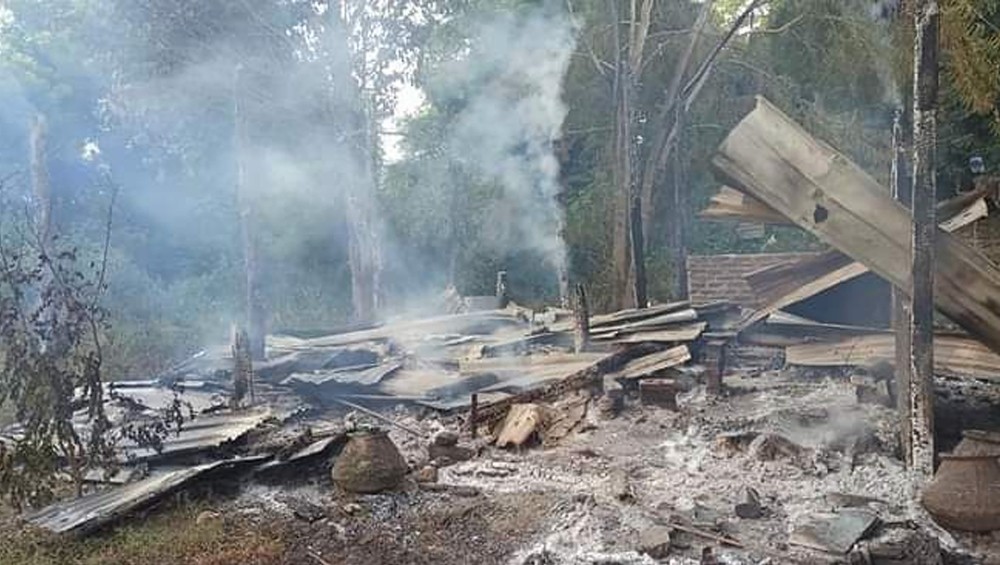22/07/2024
22/07/2024

BANGKOK, July 22, (AP): An intensification of fighting in Myanmar’s civil war has brought a sharp increase in destructive attacks on schools, a group that monitors armed conflict in the Southeast Asian nation has said in a report.
Myanmar Witness said the attacks have further strained Myanmar’s already fractured school system, taking away education for millions of children who have also been forced to flee their homes, miss vaccinations and suffer from inadequate nutrition.
The group, a project of the United Kingdom-based Center for Information Resilience, identified a total of 174 attacks on Myanmar schools and universities since the military seized power from the elected government of Aung San Suu Kyi three years ago. It said the count came from evidence in social media and news reports.
Other groups have suggested higher numbers of attacks. The Global Coalition to Protect Education from Attack, an advocacy group based in New York, counted over 245 reports of attacks on schools and 190 reports of military use of educational facilities in 2022-23.
The 2021 military takeover was met with widespread nonviolent demonstrations for democracy, but those were crushed with lethal force. Many opponents of military rule then took up arms, and large parts of the country are now embroiled in conflict. The military government is estimated to control less than half the country.
"Education underpinned the democratic movement in Myanmar, but today Myanmar’s youth are witnessing their schools - and life opportunities - reduced to rubble," said Matt Lawrence, project director at Myanmar Witness. "If education is not protected throughout Myanmar, the next generation’s view of the world risks being driven by factionalism and war, rather than hope and reason.”
Student enrollment in Myanmar dropped 80% from the beginning of the COVID-19 pandemic in 2020 through 2022, a year after the army’s takeover, according to the humanitarian group Save the Children. By mid-2022, about half the country’s children, or 7.8 million, were not attending schools, it said.


